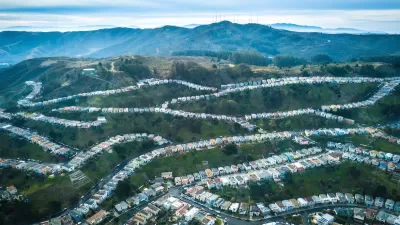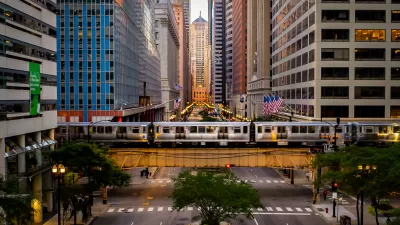In his annual tour-de-force presentation on the state of Vancouver's housing market recently, marketing guru Bob Rennie (referred to often as Canada's "condo king", and thus often accused of having a vested interest in a continued strong market for condos here in Vancouver) had some new, controversial points that are still being debated locally. Perhaps the most provocative was his call to action for the development industry to get back into building housing that is more affordable to ordinary Vancouverites (as opposed to being geared to the international market - his comment was that we know how to serve that world market, now we need to show that we can serve the local market better, or words to that effect). Given that he included details like "capping developer profit at 10%", I found his comments pretty brave in front of an audience of 700+ developers and clients.
In his annual tour-de-force presentation on the state of Vancouver's housing market recently, marketing guru Bob Rennie (referred to often as Canada's "condo king", and thus often accused of having a vested interest in a continued strong market for condos here in Vancouver) had some new, controversial points that are still being debated locally. Perhaps the most provocative was his call to action for the development industry to get back into building housing that is more affordable to ordinary Vancouverites (as opposed to being geared to the international market - his comment was that we know how to serve that world market, now we need to show that we can serve the local market better, or words to that effect). Given that he included details like "capping developer profit at 10%", I found his comments pretty brave in front of an audience of 700+ developers and clients.
Affordability is a subject that weighs heavily on all of us in Vancouver. We've had some success with facilitating social housing (for which the city requires major projects to set aside 20% of unit potential to the City, in either land or air space, after which we wait for the Provincial Government to fund the actual construction and operation - which they've begun to fund substantially recently). We've had less success, though, around regulating or incenting generally affordable housing types, for many reasons, including in some cases our own policies that can prevent more affordable housing types and supply. The City is currently working on new initiatives to do better, many as part of the EcoDensity Initiative and our recently initiated Rental Housing Strategy.
What does affordability have to do with whether Vancouver is a "world-class city?" Some of Bobs comments re-sparked the discussion of whether Vancouver is or isn't world-class. His message - Vancouver is Canada's one "world address", the one true Canadian world-class city (sorry Toronto and Montreal, he said it), attracting global attention, Asian and European investment, "and now the Russians are coming". And all this BEFORE the 4 billion dollar marketing campaign that is the 2010 Winter Olympics. We're already a "global brand" in Bobs mind, and the Olympics will just make that brand bigger. His point - that as a world-class city, Vancouver will continue to be a strong real estate market fueled by international investment and insulated by the U.S real estate troubles.
Cue the debate.
Leaving aside his bullish market assessment, Gary Mason of the Globe and Mail newspaper considered the "world-class" tag the next day, and responds "I don't see it - not yet", pointing out Vancouver's need for more cultural institutions and destinations that can define a world-class city in some folks' minds, and the lack of a global-scaled presence on the world economic stage. Can you be a world class city without such attributes? Mason suggests perhaps not.
So are we or aren't we?
I think the more interesting questions are what does world-class mean, and is being one a good thing? For that matter, did we ever ask to be one?
From a condo-sellers perspective, and from the perspective of big segments of our local economy, having access to international real estate markets might seem like a great thing. Credit goes to Rennie for recognizing these days the obligations and responsibilities that go with that, and the fact that his business model will depend on adapting to the broader needs of the local community (as local buyers in need of a home, and international buyers in search of a smart investment, compete for the same supply). Bob and I find ourselves saying similar things lately - is the corresponding increase in demand (and thus prices) from a global market a great thing to the teachers, the police officers, the nurses, the service sector employers? These professions are needed to run a great city, and they are struggling to find more affordable housing without an insane commute.
Vancouverites have many perspectives on this, and no easy answers, as managing who buys real estate is a risky game, with the great potential for unforeseen consequences.
Vancouver takes considerable pride in being frequently named the "most livable city in the world" (a better title, perhaps, than world-class). Ironically its likely one of the reasons for our status as a global money-destination, one of the down-sides to going out of our way over the past number of decades to make our city as beautiful as its surroundings deserve. Vancouver also has become a global destination for tourism, named recently the most "visitable city" in the world by Conde Nast - perhaps partially because of our natural splendor, partially our livable city-building (true urbanists know the best places to visit, are the places that work best for their residents first - authentic places).
When it comes to city planning and design itself, I do believe we are world-class. Despite being a small city by global standards, we are clearly a destination and model that "punches above its weight" in the global dialogue, as delegations from across the world come to study our practices and projects. Our livability by design is globally known, and our reputation as an emerging "eco-city" grows every day.
And yes, the Olympics gives us an opportunity to show that we can host a world-class event, like we did with Expo 86, with all of the quantifiable and intangibles that come from such a success.
We are among the best in the world at many of the things we do well, and we have a robust discussion going on about how to do better at the things we aren't as good at. For example, planners from London England recently considered our city "sleepy" and in need of more fun, culture and energy. We're working on that. More importantly, we are seeking to learn from the most creative and successful cities in the world, many of which still much more expensive than us, on how to address the affordability challenges that come with being world-class.

Depopulation Patterns Get Weird
A recent ranking of “declining” cities heavily features some of the most expensive cities in the country — including New York City and a half-dozen in the San Francisco Bay Area.

California Exodus: Population Drops Below 39 Million
Never mind the 40 million that demographers predicted the Golden State would reach by 2018. The state's population dipped below 39 million to 38.965 million last July, according to Census data released in March, the lowest since 2015.

Chicago to Turn High-Rise Offices into Housing
Four commercial buildings in the Chicago Loop have been approved for redevelopment into housing in a bid to revitalize the city’s downtown post-pandemic.

New Park Opens in the Santa Clarita Valley
The City of Santa Clarita just celebrated the grand opening of its 38th park, the 10.5-acre Skyline Ranch Park.

U.S. Supreme Court: California's Impact Fees May Violate Takings Clause
A California property owner took El Dorado County to state court after paying a traffic impact fee he felt was exorbitant. He lost in trial court, appellate court, and the California Supreme Court denied review. Then the U.S. Supreme Court acted.

How Urban Form Impacts Housing Affordability
The way we design cities affects housing costs differently than you might think.
City of Costa Mesa
Licking County
Barrett Planning Group LLC
HUD's Office of Policy Development and Research
Mpact Transit + Community
HUD's Office of Policy Development and Research
City of Universal City TX
ULI Northwest Arkansas
Town of Zionsville
Write for Planetizen
Urban Design for Planners 1: Software Tools
This six-course series explores essential urban design concepts using open source software and equips planners with the tools they need to participate fully in the urban design process.
Planning for Universal Design
Learn the tools for implementing Universal Design in planning regulations.




















